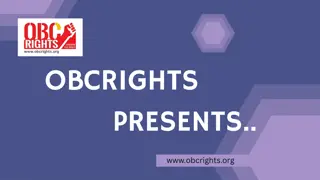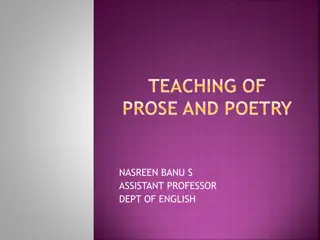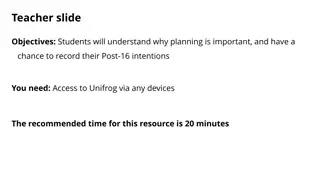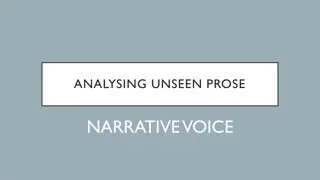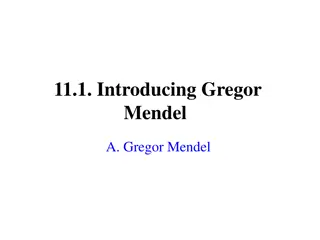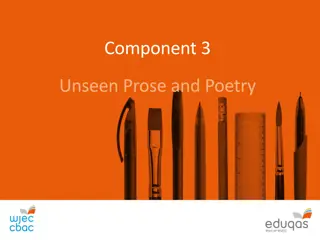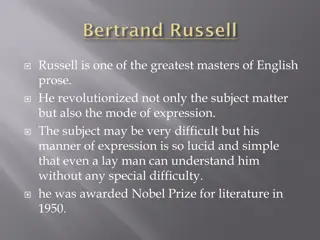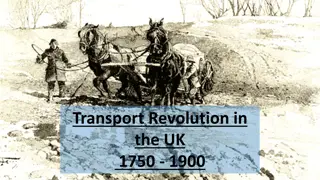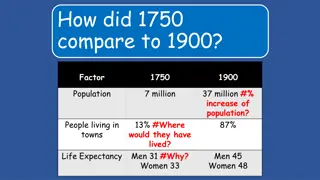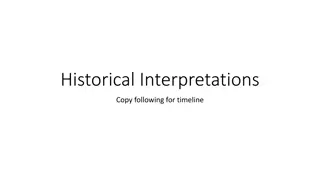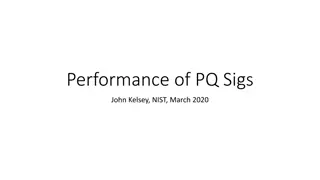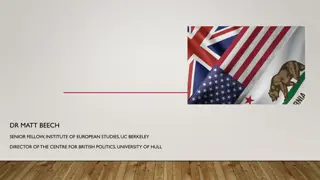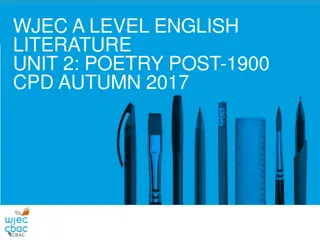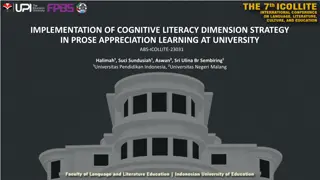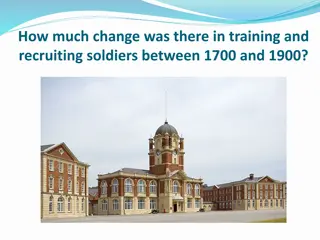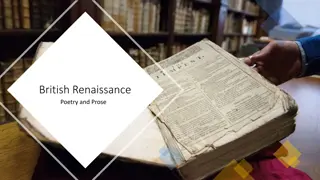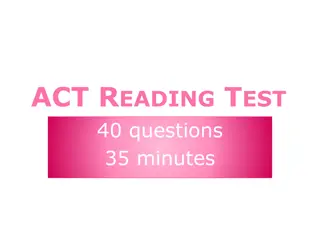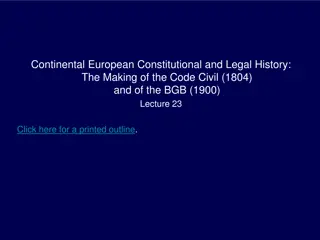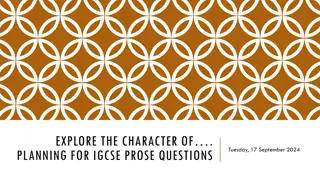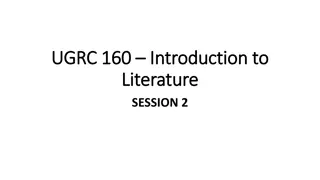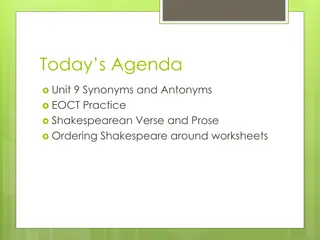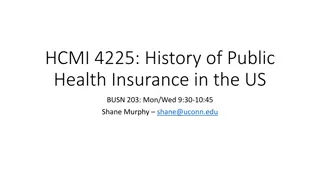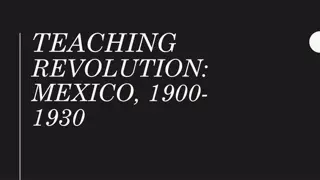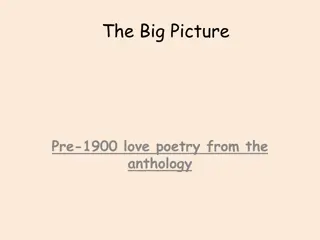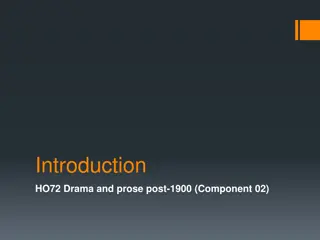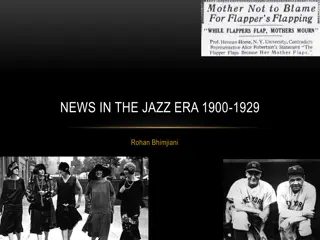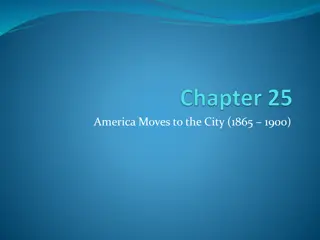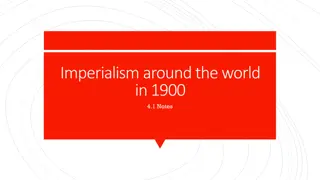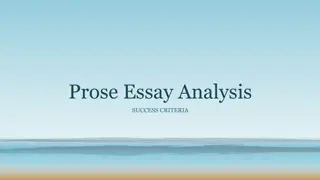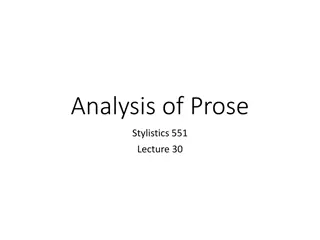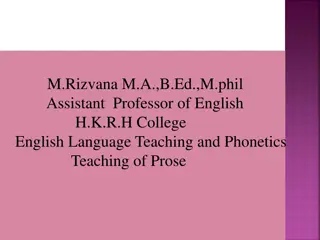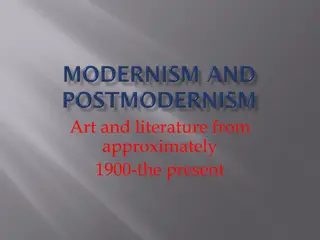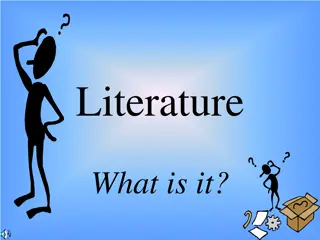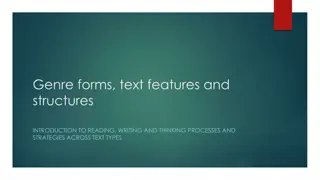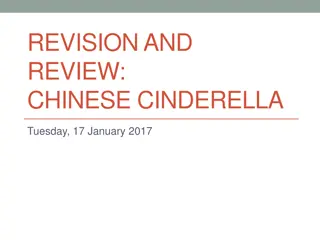Comprehensive Approach to Pre/Post-Operative Emergency Management
The provided content covers a case of a patient post right hemicolectomy with abdominal pain. Initial assessment and management plan are discussed, emphasizing the importance of targeted post-operative assessment and recognizing serious post-operative pain causes. Other potential complications and e
2 views • 22 slides
Post Matric Scholarship for OBC Students – Puducherry
How to get Post Matric Scholarship for Obc in Puducherry\n\nThe Post Matric Scholarship for OBC Students in Puducherry for the academic year, offered by the Ministry of Social Justice & Empowerment, Government of India, is an opportunity for students in the OBC category to pursue post-matric educati
1 views • 5 slides
Teaching of Prose and Poetry by Nasreen Banu - A Comprehensive Guide for English Learners
Delve into the intricacies of teaching prose and poetry with insights from Assistant Professor Nasreen Banu. Learn about the aims, general objectives, steps, and alternative methods for engaging students in English language learning. Enhance listening and speaking skills through a structured approac
0 views • 19 slides
Importance of Post-16 Planning and Using Unifrog
Understanding the significance of post-16 planning for future success and utilizing Unifrog tools to create a pathway for achieving goals. Access Unifrog to record Post-16 intentions and gain guidance on career planning. Engage with educational resources to develop a strategic plan for post-16 aspir
0 views • 12 slides
Understanding Narrative Perspective in Unseen Prose Narratives
Explore the narrative voice in unseen prose narratives through the analysis of different narrative perspectives, such as homodiegetic and heterodiegetic narrators. Understanding these terms helps in interpreting the impact of perspective on storytelling and themes in literary texts for exam preparat
1 views • 17 slides
Exploring the Legacy of Gregor Mendel: Pioneer of Genetics
Gregor Mendel, an Austrian monk, revolutionized the understanding of heredity with his formulation of fundamental laws in the 1860s. Contrary to the prevailing blending theory of inheritance, Mendel's particulate theory explained species diversity and variation effectively. By meticulously conductin
2 views • 20 slides
Insights into Unseen Prose and Poetry Analyses
Delve into the assessment of unseen prose and poetry with a focus on introductions, candidate evaluations, and critical engagement. Explore the importance of contextual references, vocabulary analysis, and integration of other readings in shaping responses to literary texts.
1 views • 12 slides
Exploring the Mastery of English Prose: The Style of Bertrand Russell
Bertrand Russell, a Nobel Prize-winning writer, revolutionized English prose with his lucid and simple expressions on complex subjects. Known for his use of long sentences, terseness, allusiveness, and irony, Russell's style combines clarity with deep meanings and continuity of thought. His allusion
0 views • 11 slides
Transport Revolution in the UK 1750-1900: A Historical Perspective
Explore the challenges and transformations of Britain's transport network from 1750 to 1900. Delve into the problems faced, reasons for change, and necessity for adaptation. Engage in activities to enhance understanding of the transportation evolution during this period.
0 views • 16 slides
Comparing 1750 to 1900: Population Growth in Britain
The population of Britain saw a significant increase between 1750 and 1900. In 1750, the population was 7 million, and by 1900, it had grown to 37 million. This represented an 87% increase. The number of people living in towns also rose from 13% to a higher percentage. Factors contributing to this g
0 views • 6 slides
Cold War Historical Interpretations Timeline
Explore different historical interpretations of the Cold War through three main perspectives: Traditional/Orthodox, Revisionist, and Post-Revisionist/Contemporary/Post-1991. The Traditional/Orthodox view blames Stalin for the breakdown of relations, the Revisionist view points to mutual provocations
1 views • 9 slides
GCSE English Literature Exam Overview
This overview provides information on the GCSE English Literature exam structure, content, and assessment objectives for both components. It includes details on the texts studied, such as Shakespeare, poetry, post-1914 prose/drama, and 19th-century prose. Students are assessed on their ability to re
0 views • 23 slides
GCSE English Literature Exam Overview
This GCSE English Literature exam overview provides details on the components, assessment objectives, text choices, and key information for students. It covers Shakespeare, Poetry, Post-1914 Prose/Drama, 19th Century Prose, and Unseen Poetry. Students will engage with a variety of texts ranging from
5 views • 23 slides
Performance of Post-Quantum Signatures: Analysis and Comparison
Explore the performance and characteristics of various post-quantum signature schemes including Lattice-based Dilithium, QTesla, Falcon, Symmetric Sphincs+, Picnic, Multivariate GEMSS, Rainbow, and more. Understand the implications of using these schemes in TLS, code signing, firmware updates, signe
0 views • 29 slides
Post-Brexit Trade Developments and Partnerships: A Comprehensive Overview
The post-Brexit landscape for the UK involves significant changes in trade relationships, with key developments including trade agreements, partnerships, and negotiations involving the EU, US, and California. Dr. Matt Beech's insights on the UK's evolving position post-EU exit shed light on the chal
1 views • 6 slides
A Guide to WJEC A-Level English Literature Unit 2 Poetry Post-1900 CPD
Explore the assessment objectives, principal examiner's reports, and tips for balancing the AOs in the Unit 2 poetry post-1900 CPD exam. Understand the importance of addressing all five AOs and maintaining a balanced approach in your essays. Dive into advice on structure, detailed analysis, and effe
0 views • 20 slides
Implementation of Cognitive Literacy in Prose Appreciation Learning
The study focuses on the implementation of cognitive literacy dimension strategy in prose appreciation learning at universities. It discusses the impact of technological advances on society and the importance of incorporating moral values in education. The research findings indicate that the cogniti
0 views • 8 slides
Practical Criticism: Analysis and Appreciation of Poetry and Prose
Delve into the world of practical criticism and critical appreciation in BA III English studies with a focus on analyzing and appreciating poetry and prose. Explore the history, significance, and methodology behind this literary practice while gaining insights into interpreting unseen poems. Discove
3 views • 20 slides
Evolution of Soldier Recruitment and Training from 1700 to 1900
Soldier recruitment and training methods between 1700 and 1900 underwent significant changes, with men signing up for short enlistments or life service with incentives like steady pay and bounties. However, challenges such as poor quality soldiers, disciplinary issues, and desertions persisted. Othe
2 views • 13 slides
British Renaissance Poetry and Prose: Influential Poets and Their Works
Explore the world of British Renaissance poetry and prose through the works of renowned poets like Sir Thomas Wyatt, Edmund Spenser, and Sir Philip Sidney. Dive into the evolution of the sonnet form, from Wyatt's introduction of the Italian/Petrarchan sonnet to Spenser's masterpieces like "The Faeri
1 views • 13 slides
Understanding Paragraph Organization in Historical Prose Writing
Explore the D-N-A structure of paragraph organization in historical prose writing, focusing on transitional words, revision strategies, and the inseparable connection between history and writing. Learn how to develop effective paragraphs that guide the reader through your historical narrative.
0 views • 18 slides
Understanding the ACT Reading Test Content
The ACT Reading Test comprises 40 questions to be answered in 35 minutes, covering four categories: Prose Fiction, Humanities, Social Sciences, and Natural Sciences. Each category has a specific percentage of questions. The test evaluates your ability to comprehend various passages, including prose
1 views • 24 slides
The Making of the Code Civil (1804) and the BGB (1900)
This lecture provides a historical overview of the development of two significant civil codes - the French Code Civil of 1804 and the German BGB of 1900. It explores the political events in France and Europe from 1750 to 1815, leading up to the creation of these codes amidst revolutionary movements
2 views • 53 slides
Exploring the Character of George in 1930s America for IGCSE Prose
Steinbeck's portrayal of George in the context of 1930s America reflects themes of the post-depression and dustbowl era, societal collapse, the American Dream, discrimination, and the challenges faced by itinerant workers. George's character serves as a lens through which to examine the failures of
0 views • 11 slides
Understanding Elements of Fiction in Prose Writing
This session delves into the essential elements of fiction in prose writing, covering plot development, characterization, setting, and more. Students will learn to analyze and interpret these elements in stories, with a focus on applying their understanding to a specific short story. Through detaile
0 views • 15 slides
Understanding Shakespearean Verse and Prose: A Comprehensive Guide
Delve into the intricate world of Shakespeare's language with a focus on prose, rhymed verse, and blank verse. Learn how to distinguish between these forms and their significance in his plays through visual and textual clues. Explore examples of rhymed couplets and heroic couplets, shedding light on
0 views • 24 slides
History of Public Health Insurance in the US: Understanding Federal Expenditure Before 1900
Explore the historical development of public health insurance in the US, focusing on federal expenditure before 1900. Topics covered include Civil War implications, Freedmen's Bureau, pensions, mutual aid organizations, and early welfare states. The narrative delves into the Civil War era, internal
0 views • 83 slides
Teaching Revolution in Mexico: Exploring the 1900-1930 Period
Explore the intricacies of the Mexican Revolution from 1900 to 1930 through sessions, discussions, and timelines. Delve into the international influences, teaching strategies, and resources related to this historical event. Understand how historical revolutions can shed light on modern issues and in
0 views • 16 slides
Pre-1900 Love Poetry: The Big Picture
Explore the world of love poetry before 1900 through the lens of John Wilmot, Earl of Rochester. Delve into his life, works, and influence, reflecting the poetic trends of the era. Uncover the complexities of love, society, and expression in historical context, preparing to analyze and appreciate th
0 views • 28 slides
Study of Modern Drama and Prose Post-1900
This component focuses on the study of a modern play (The History Boys) and a modern prose text (The Great Gatsby). Learners explore cultural and contextual influences on writers and readers, analyze literary texts, demonstrate understanding of contexts, and make connections across texts. The examin
0 views • 23 slides
Media and Entertainment in the Jazz Era: 1900-1929
The Jazz Era of 1900-1929 witnessed the development of entertainment through iconic theaters like Orpheum and Keiths, driven by popular figures like Houdini. Women fought for suffrage rights, leading to significant social shifts. The Roaring Twenties brought about a time of wealth, cultural change,
0 views • 9 slides
Urbanization and Immigration in America (1865-1900)
America experienced significant urbanization and immigration between 1865 and 1900. Cities grew rapidly, attracting people from rural areas seeking industrial jobs and economic opportunities. The influx of immigrants from Southern and Eastern Europe brought about social tensions and challenges, as t
0 views • 15 slides
Global Imperialism in 1900: Expansion and Acquisition
Explore the expansionist endeavors of nations in 1900, including the US acquiring Alaska and Hawaii, as well as European control in China through spheres of influence. Delve into the motivations, controversies, and impacts of these imperialistic actions that shaped the geopolitical landscape of the
0 views • 16 slides
Prose Essay Analysis Success Criteria
Explore the steps involved in analyzing a prose essay for success criteria. From reading the exemplar essay to developing criteria and reflecting on improvement strategies, this process aims to enhance writing skills and achieve measurable goals in future essays.
0 views • 6 slides
Understanding Stylistic Analysis in Literature
Stylistic analysis in literature involves examining linguistic features like lexis, grammar, foregrounded elements, and context to distinguish between literary and non-literary prose. While poetry allows for whole text analysis due to its brevity, prose analysis often focuses on selected extracts fo
0 views • 16 slides
Effective Strategies for Teaching English Prose - A Comprehensive Guide
Teaching English prose is a fundamental aspect of language education, focusing on reading comprehension, vocabulary enrichment, and writing skills. This guide covers the objectives of teaching prose, including enhancing comprehension, pronunciation, vocabulary, and writing abilities. It emphasizes i
0 views • 21 slides
Exploring Art and Literature from 1900 to the Present
Novels, plays, and poetry saw a resurgence post-Whitman and Dickinson, with writers experimenting with unique styles like interior monologue and stream of consciousness. Characters chased the American dream, expressing admiration for America as a land of opportunity. The Modernism movement reflected
0 views • 13 slides
Exploring the World of Literature
Literature encompasses various genres such as poetry, drama, and prose, each with unique elements and characteristics. It provides a platform for expressing ideas, emotions, and stories in a creatively compelling manner, capturing the interest of readers for generations. Discover the artistry of poe
0 views • 12 slides
Understanding Genre Forms, Text Features, and Structures in Reading, Writing, and Thinking
Explore the world of genre forms, text features, and structures in this engaging session. Learn to classify different texts, recognize generic features, and understand the main literary genres including prose, poetry, and drama. Delve into the nuances of prose writing, the musical quality of poetry,
0 views • 22 slides
Analysis of Structure and Form in Chinese Cinderella
Explore the internal organization and prose style of the text "Chinese Cinderella" through an examination of structure, narrative form, dialogue usage, and character development. Dive into how the sections are divided, the use of dialogue to define characters, and the indicators that stand out in th
0 views • 6 slides

